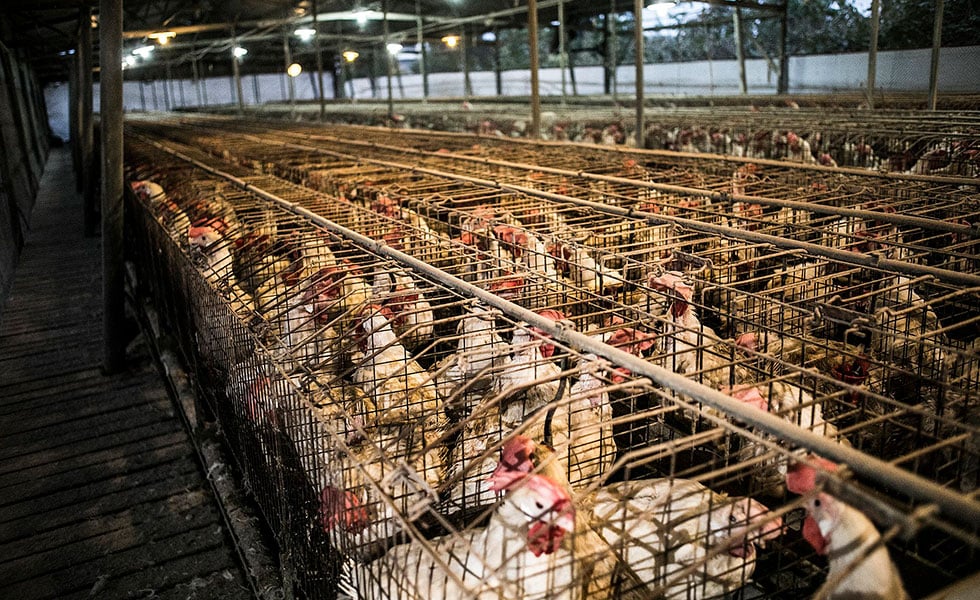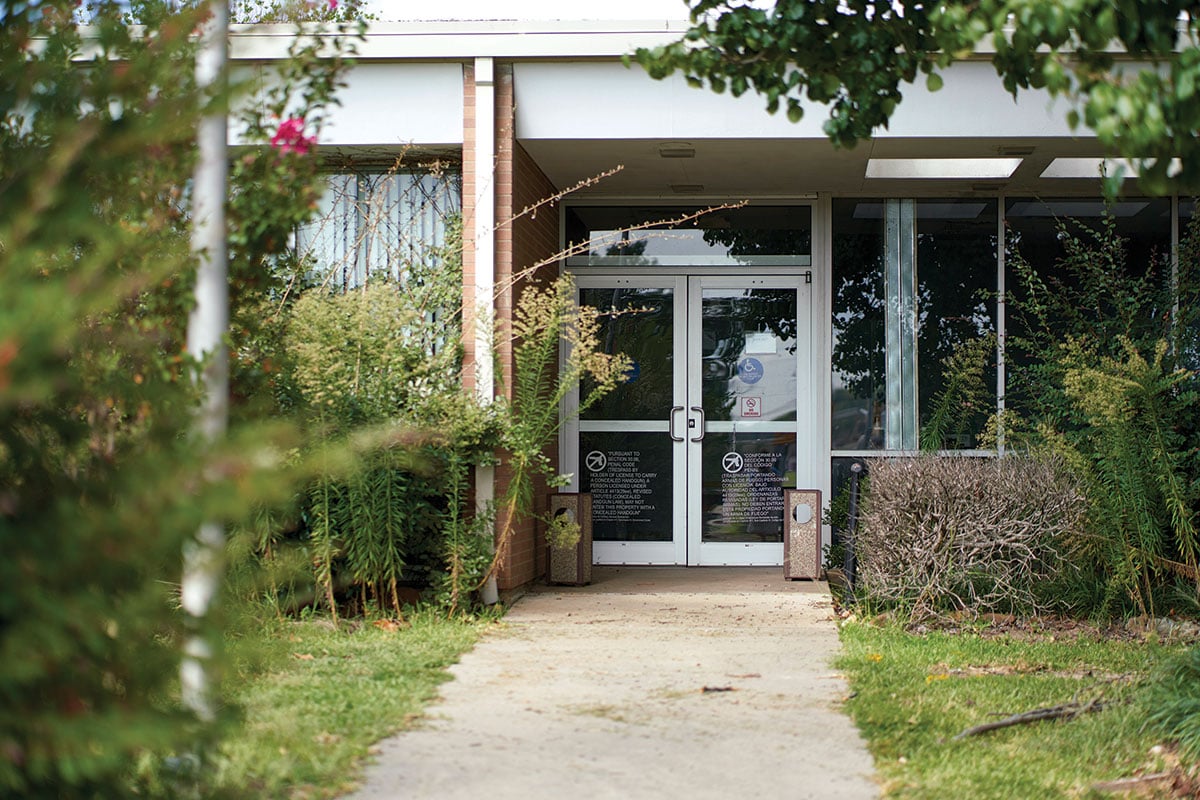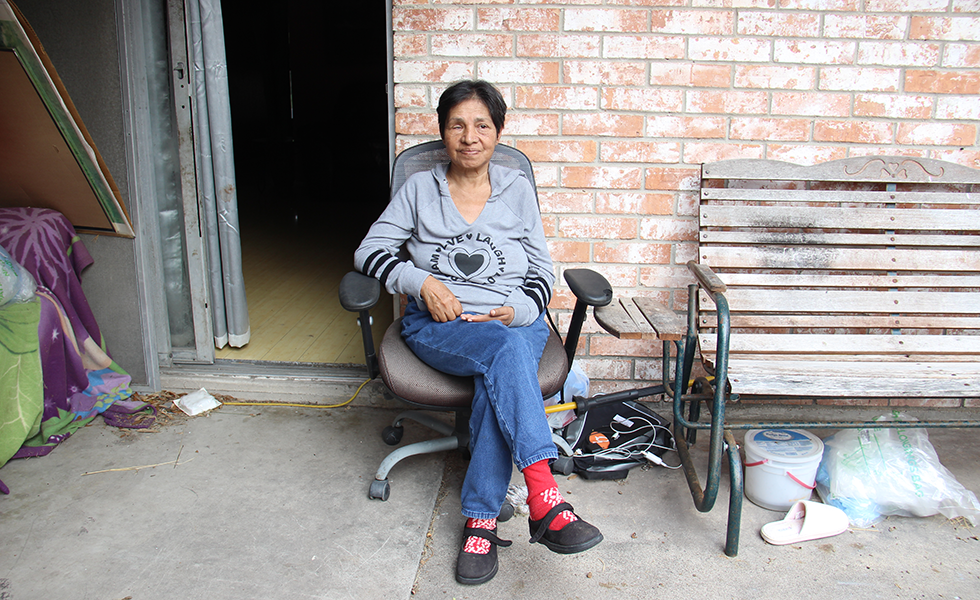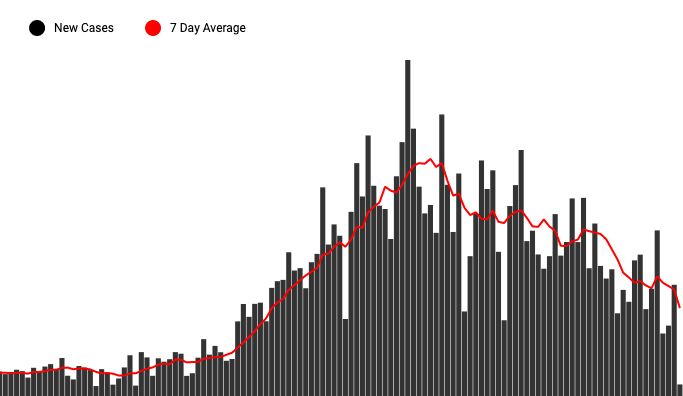
COVID-19 Cases Now Tied to Meat Plants in Rural Texas Counties Wracked with Coronavirus
The outbreaks, which are being investigated by the state health agency, represent the first reported cases of the virus inside Texas meatpacking plants, and are in rural areas where medical resources are already stretched thin.
A meatpacking plant in Deep East Texas appears to be connected to an outbreak of COVID-19 in a rural part of the state where the number of coronavirus cases has skyrocketed in recent weeks. The state health department is investigating cases at a Tyson poultry processing plant in Shelby County that may comprise a significant number of the county’s 69 confirmed cases. While meatpackers across the nation have been slammed with high numbers of coronavirus cases, leading to the deaths of workers and facility closures, this represents one of the first known outbreaks of the virus at a plant in Texas.
The Texas Department of State Health Services (DSHS) has offered few details of its investigation into the outbreak at the Tyson facility on the Texas-Louisiana border. But Dr. Florencio Singson, who operates a clinic in Center, the county seat, told the Observer that health officials said the outbreak represents a “majority” of the county’s cases. Meanwhile, Tyson posted on its Facebook page that it is closing the facility this week. The post made no mention of the apparent outbreak, saying only that the company was installing new equipment at the plant.
Shelby County, population 25,400, has one of the highest per capita rates of confirmed COVID-19 cases in Texas. It’s nearly four times that of the state overall, and the highest countywide rate outside the Panhandle. Cases ballooned in Louisiana and into East Texas in recent weeks, with coronavirus now confirmed in nearly every Texas county in the region, many of which are rural and have limited medical resources. Many also have large populations of African Americans, who are being infected with and dying of coronavirus at disproportionately high rates.
Public health experts say the spread of coronavirus in the region (and the state overall, which had nearly 20,200 confirmed COVID-19 cases as of Tuesday evening) is likely dramatically undercounted due to limited testing. “We know it’s underreported [in Shelby County],” Singson told the Observer. Texas has been slow to roll out widespread testing, resulting in among the fewest completed tests per capita of any state.
Meat processing plants around the country have seen huge outbreaks of COVID-19, as the virus has spread quickly among workers crammed in close quarters, often without recommended protective gear. The Smithfield pork processing facility in Sioux Falls, South Dakota, was shuttered last week when more than 600 cases were connected to the plant. At least 50 workers at a JBS beef slaughterhouse in Colorado have tested positive for COVID-19, prompting the plant to close until at least April 24. Four of the workers died. A Tyson pork processing plant in Iowa partially reopened Tuesday following a two-week closure. Nearly 200 employees tested positive and two died.
A Tyson representative declined to respond to specific questions from the Observer about the Center plant. The company says that it now takes workers’ temperature, requires face coverings, has increased distance and barriers between workers, and does additional cleaning at some facilities in response to COVID-19. Experts say it’s unlikely that the virus can be transmitted through food. The Tyson representative would not say how many cases have been confirmed in Center, citing “an ever-changing situation.”
A DSHS spokesperson did not answer Observer questions about whether the agency is investigating potential outbreaks at other beef, pork, and poultry slaughterhouses in Texas. According to the Texas Tribune, DSHS is also investigating a COVID-19 outbreak at a JBS beef processing plant in Moore County in the Texas Panhandle. The county’s per capita rate of confirmed COVID-19 cases is about twice that of Shelby’s, and the second highest in the state. The companies have no responsibility to tell the general public when workers become infected; in fact, elsewhere in the nation, some meat plants continued to operate even as workers fell ill. At the Tyson plant in Center, it’s unclear when the first worker got sick and if the company changed its workplace procedures in response.
Though some meatpacking facilities are in urban and suburban areas, many are clustered in rural areas, places that experts have warned are particularly ill-equipped to deal with COVID-19 outbreaks. In Texas, more than one-fifth of the state’s 254 counties have just one doctor or none at all. At least 20 rural hospitals have closed since 2013—all in East Texas. Shelby County has been without a hospital since it closed that year. Residents have traveled nearly 40 minutes to the hospital in Nacogdoches or almost two hours to health care facilities in Tyler for COVID-19 treatment, says Singson.
Singson said people in Shelby County appear to be following public health guidance—wearing a mask when grocery shopping and canceling in-person church services. But COVID-19 cases continue to mount there. County Commissioner Jimmy Lout said his 10-year-old grandnephew tested positive for the virus in early April, though his most recent test came back negative. Lout’s sister-in-law, the boy’s grandmother, died of respiratory complications on April 3. She was rushed from the emergency room in Center and died in a Nacogdoches hospital soon after. It’s unclear whether she was tested for the virus, but Lout said doctors would not admit visitors to see her before she died.
Charles Barr, also a Shelby County commissioner, said his neighbor tested positive for the virus in March and has been confined to his home for weeks. “He’s been hurting and aching all over,” Barr said of the man, who now appears to be recovering. Someone whom Barr’s neighbor was in contact with at church is now being kept alive by a ventilator in a Tyler hospital.
“Just keep us in your prayers,” Barr said.
Find all of our coronavirus coverage here.
Read more from the Observer:
-
Confusion Reigns in Matamoros Migrant Camp Over ‘Remain in Mexico’: Amid a chaotic back-and-forth caused by a court ruling, asylum-seekers in Matamoros are still waiting.
-
Trump’s Wall May Have to Avoid Multiple Historic Cemeteries: In a bid to protect a high-profile South Texas graveyard, Congress appears to have shielded other notable cemeteries too.
-
Off the Texas Gulf Coast, Tugboat Crews Are Stuck on Their Boats Without Pay: Bouchard Transportation, a massive shipping firm, hasn’t paid docking fees or worker salaries, leading to a rare quandary in U.S. waters.


